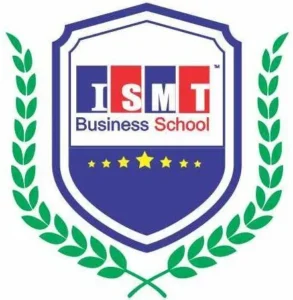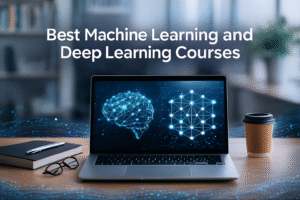1) Why Machine Learning and AI Certifications Matter
A best certification for machine learning and AI provides structured learning, guidance, and proof of skills. Employers increasingly look for verified projects and applied skills rather than just theoretical knowledge. Certification programs also serve as a shortcut for beginners to gain industry-relevant exposure to Python, R, TensorFlow, PyTorch, and cloud AI platforms.
Unlike casual online tutorials, high-quality certifications integrate structured learning paths, capstone projects, and assessments to verify real understanding and job readiness.
2) Who Should Pursue These Certifications
- Graduates in computer science, engineering, statistics, or math looking to enter AI/ML roles with best certification for machine learning and ai.
- Professionals in analytics, software, or data science seeking formal recognition and skill validation.
- Entrepreneurs and tech managers who want to understand AI tools for decision-making.
- Career changers aiming to move into AI, deep learning, or data-driven roles.
3) Core Skills Covered in Top Programs
A best certification for machine learning and ai program balances theory and practice. Look for courses that include:
- Programming & Tools: Python, R, Jupyter notebooks, Git.
- Machine Learning Algorithms: Supervised and unsupervised learning, regression, classification, clustering.
- Deep Learning: Neural networks, CNNs, RNNs, LSTM, transformers for NLP and vision.
- Data Handling: Data cleaning, feature engineering, dataset management, and preprocessing.
- Model Evaluation: Cross-validation, ROC curves, precision/recall, hyperparameter tuning.
- Deployment & Cloud Tools: TensorFlow, PyTorch, MLFlow, AWS Sagemaker, Google AI Platform.
- Visualization & Storytelling: Presenting AI results to non-technical stakeholders.
A practical machine learning and deep learning course provides lab sessions with real-world datasets to reinforce these skills.
4) Difference Between Machine Learning and Deep Learning Courses
- Machine Learning Courses: Focus on algorithms like regression, classification, clustering, decision trees, SVMs, and ensemble methods. They emphasize applied problem-solving with structured data.
- Deep Learning Courses: Cover neural networks, deep architectures, CNNs, RNNs, LSTMs, and reinforcement learning. Focus is on unstructured data such as images, video, text, and voice.
High-quality certifications often offer integrated tracks covering both areas so you get a full spectrum of AI capabilities.
5) Top Features of the Best Certification for Machine Learning and AI
When choosing a program, prioritize the following features:
- Hands-on projects and capstones — Practical work with real datasets is non-negotiable.
- Industry recognition — Certifications recognized by companies like Google, IBM, Microsoft, or Coursera/edX can enhance employability.
- Tool exposure — Python, TensorFlow, PyTorch, and cloud AI platforms.
- Mentorship & feedback — Regular guidance from industry practitioners ensures your projects are job-ready.
- Placement support — Access to internships, portfolio building, and interview prep.
- Peer collaboration — Team projects simulate real-world AI/ML workflows.
- Assessment & grading — Verifies your applied understanding and not just theoretical completion.
6) Popular Programs and Providers — Evaluated
Some widely regarded certifications include:
- Coursera / Stanford AI & ML specialization — Covers theory and applied ML; recognized globally.
- edX / MIT Professional Certificate in AI & Deep Learning — Comprehensive, project-based learning.
- IBM AI Engineering Professional Certificate — Focuses on Python, ML algorithms, deep learning, and cloud deployment.
- ISMT Business School Machine Learning & AI Program — Offers lab-based practical learning, capstone projects, mentorship, and placement guidance with industry tie-ups.
Check for updated syllabus, project scope, lab access, and industry collaborations when choosing any program.
7) Duration, Fees, and Learning Formats
- Duration: Programs range from 3–6 months for fast-track online formats to 9–12 months for intensive professional tracks.
- Fees: Vary from ₹50,000 for online certificate programs to ₹2–3 lakh for comprehensive lab-intensive courses.
- Learning Format: Online, hybrid, or in-person; look for live sessions or mentor feedback for best outcomes.
ISMT Business School offers flexible schedules combining theory, labs, and capstone projects suited for working professionals and freshers alike.
8) Career Opportunities and Expected Salaries
Graduates with strong ML/AI certifications can enter roles such as:
- Machine Learning Engineer
- AI Specialist / Deep Learning Engineer
- Data Scientist
- NLP Engineer / Computer Vision Engineer
- AI Consultant
Salary Expectations in India:
- Entry-level roles: ₹6–12 LPA, depending on the program and projects completed.
- Mid-level (2–5 years): ₹12–25 LPA, especially with portfolio projects and cloud AI experience.
- Freelancing/consulting: Rates vary based on project complexity and client type; strong portfolios command premium pay.
9) How to Build a Project Portfolio Alongside Certification
- Start with small datasets (Kaggle, UCI ML repository).
- Progress to real-world datasets from finance, healthcare, retail, or NLP.
- Implement a full ML pipeline: data collection → preprocessing → modeling → evaluation → deployment.
- Create a GitHub repository showcasing code, notebooks, and results.
- Present your results visually with dashboards, notebooks, or mini-apps.
- Capstone projects offered by ISMT Business School integrate all steps above with mentorship.
A strong portfolio often outweighs the name of the certificate itself when recruiters evaluate candidates.
10) Helpful Enhancements
- Project Checklist: Dataset selection, feature engineering, algorithm choice, evaluation metrics, reporting.
- 90-Day Learning Roadmap: Week-wise breakdown for Python, ML, Deep Learning, and project execution.
- Email Template: Request placement, project, or mentorship details from course providers.
11) Author & Review Box
Author: AI/ML educator and consultant with 10 years of experience training professionals, designing capstone projects, and advising candidates for industry roles.
Reviewed by: ISMT Business School editorial team.
About ISMT Business School
ISMT Business School — Opp. Arunkumar Vaidya Ground, Next to Old MHB Colony Bus Stop, Old MHB Colony, 3 min from Don Bosco Signal, Gorai Road, Borivali-West, Mumbai-91.
Website: www.ismtindia.com
Contact:+91-9930526101, +91-8976055540
Email: info@ismtindia.com
ISMT offers industry-aligned programs in machine learning and AI, lab-based project learning, mentorship, and placement support.
12) FAQ
Q: Do I need prior programming experience?
Q: How long does it take to complete a certification?
Q: Will a certification guarantee a job?
Q: Which skills do employers value most?
Q: Should I do multiple certifications?
Next Steps
- Request ISMT Business School’s latest syllabus and placement report.
- Start a 90-day learning plan alongside certification to build a strong portfolio.
- Compare 2–3 certifications to select one with mentorship, projects, and industry recognition.





